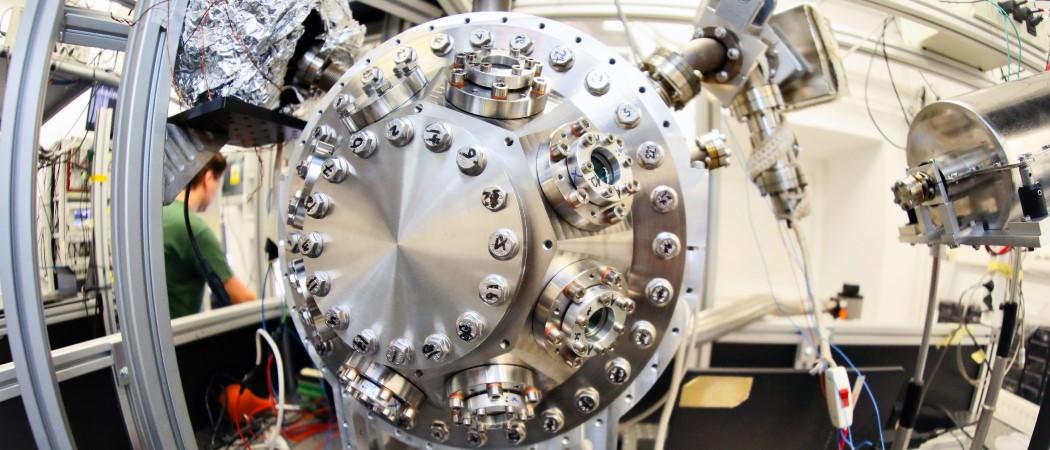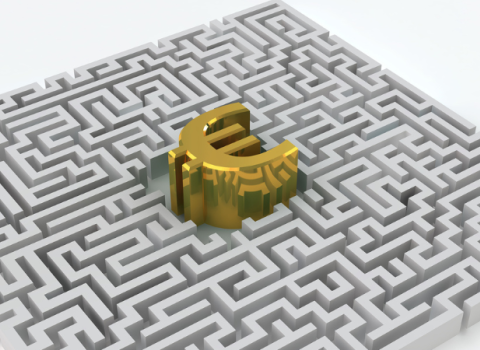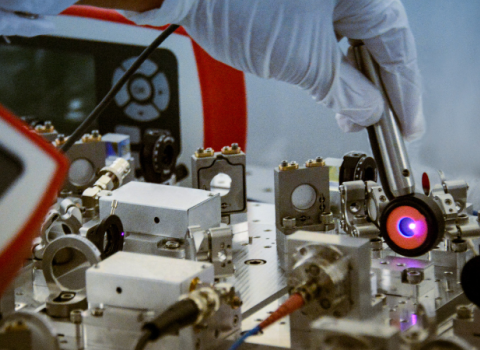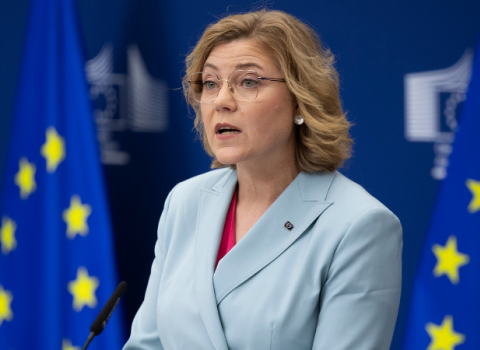European researchers are at the cutting edge of quantum technologies, according to the QuantERA research funding programme

Quantum laboratory, Nicolaus Copernicus University in Toruń, PL. Researchers from this laboratory are conducting the project: QuantumGuide concerning hollow-core fiber atom guide for quantum devices, photo by A. Romański/UMK
Europe is remarkably competitive in terms of quantum technologies, according to QuantERA, the largest European quantum technology research-funding programme. Quantum technologies harness the distinctive properties of quantum physics to produce a functionality or performance which would be otherwise unattainable.
"Many ideas and concepts in the field have emerged on our continent”, observes Professor Konrad Banaszek, the scientific coordinator of QuantERA. As a case in point, he mentions research on quantum communication and cryptography, such as next-generation quantum communication protocols that guarantee secure data transmission even if the exact characteristics of devices are not known.
Revolutionary change
Researchers argue that the advancement of quantum technologies may also lead to revolutionary change in fields as diverse as medicine, meteorology, robotics, banking and telecommunications, as well as complex system simulation. We can expect the advent of new sensors, detectors and more accurate clocks. Within the next twenty years, some of our medical diagnostic techniques will change; procedures such as magnetic resonance will likely become faster, more accurate, cheaper and less invasive. Quantum technologies will also improve the sensitivity of detectors used to sense gravitational waves.
The great value and potential of the field has not escaped the notice of governments across Europe; various countries have drafted national and domestic strategies for quantum technology development. In 2018, the European Commission launched a ten-year programme known as the Quantum Flagship, which consists of research institutions, industrial centres and decision-makers working together to help Europe emerge as a leader in quantum technologies. The QuantERA network was established two years earlier; today, it brings together 39 research-funding agencies from the European continent, as well as Israel and Turkey, and its mission is aligned with the long-term strategy adopted by the European Union.
A network of new ideas
“Many research problems cannot be studied or investigated in just one country; to address them, you need the knowledge and experience of multiple teams. QuantERA enables an influx of new ideas within the field of quantum technology”, says Professor Banaszek. The network promotes ambitious research into cutting-edge quantum technology engineering, supports cooperation between researchers and research-funding agencies, monitors actions and strategies in the field of quantum technology, and drafts guidelines on responsible research.
To date, QuantERA has announced three calls (in 2017, 2019 and 2021) and funded 77 projects that have involved 400 different research groups. The scope of research eligible for funding under the programme is very broad, covering quantum communication, quantum simulation, quantum computation, quantum information sciences and quantum metrology sensing and imaging. Every call announcement includes a declaration of openness to new initiatives. “All the new ideas that emerge in Europe, for which Europe is so well known and appreciated around the world, have space to flourish here. We provide a platform for communication between researchers, create a forum for dialogue between them and research-funding agencies, and offer funds to put their ideas into practice”, says Sylwia Kostka, a QuantERA coordinator. Kostka emphasises that the network markedly strengthens European ties. “The research groups we bring together are so numerous that we are able to create a truly European research space”, she adds.
Initially, the network primarily funded basic research, but in the last call, grants were also awarded to applied research projects. “We really promote basic research because the area is still so young. Especially since the path from idea to implementation and to finished product can be really short”, says Professor Banaszek. Quantum random number generators are one such example. First-generation devices are already available; in the future, they may find applications wherever secure communication is of the essence, including in critical infrastructure of key importance to national security.
Boosting European potential
QuantERA is an ERA-Net Co-fund initiative, co-funded by its member agencies and the European Commission. Coordinated by the Polish National Science Centre, the network sets out to promote the participation of countries in which the level of research and innovation is below the EU average (the so-called widening countries). “The financial mechanism is designed to encourage cooperation that breaks the mould and help create research consortia with a greater degree of openness”, says Prof. Łukasz Rudnicki from the University of Gdańsk, who coordinates a project entitled “Application-ready superresolution in space and frequency”, awarded funding under the QuantERA programme in 2019. His research, which uses quantum measurements methods to improve the resolution of optical devices, with potential applications in astronomy (finding distant planets), aviation technologies and spectroscopy (studying the chemical composition of various substances), brings together partners from the Czech Republic, Poland, France, Spain and Germany. “QuantERA allows us to tap the potential of scientists from all over Europe, as well as countries that have a less-developed academic structure or have only recently joined the EU. This is a great value of this programme”, explains Prof. Rudnicki.
The next QuantERA call is scheduled for 2023. If the network gets funding from the European Commission, yet another will take place two years later. “If we want Europe to remain competitive, we need to secure further funding for QuantERA”, concludes Prof. Banaszek.





 A unique international forum for public research organisations and companies to connect their external engagement with strategic interests around their R&D system.
A unique international forum for public research organisations and companies to connect their external engagement with strategic interests around their R&D system.